BMW starts making Mini cars in Germany
It is also the first time the BMW Group produces Mini and BMW cars in the same factory. The Mini Countryman now rolls off the same assembly line as the BMW 1 Series, BMW 2 Series Gran Coupé and BMW 2 Series Active Tourer.
Milan Nedeljković, Board Member for Production, calls this “multi-brand operations” on a flexible production system as part of a long-term strategy for the BMW iFactory.
The Group has invested around half a billion euros in Leipzig to increase production volume for new models. The third-generation Mini Countryman, presented at this year’s IAA, will be available with a petrol, diesel or fully electric powertrain, with the high-voltage batteries for the Mini Countryman Electric also being made in Leipzig.
To adapt the production system to Mini-specific requirements, the BMW Group invested around €200 million. Initially approx. 100 Mini Countryman cars a day will roll off the production lines, rising to 500 during the course of next year – in addition to the almost 1,000 BMW cars already coming out of the factory every day. The company does not estimate how many will be electric.
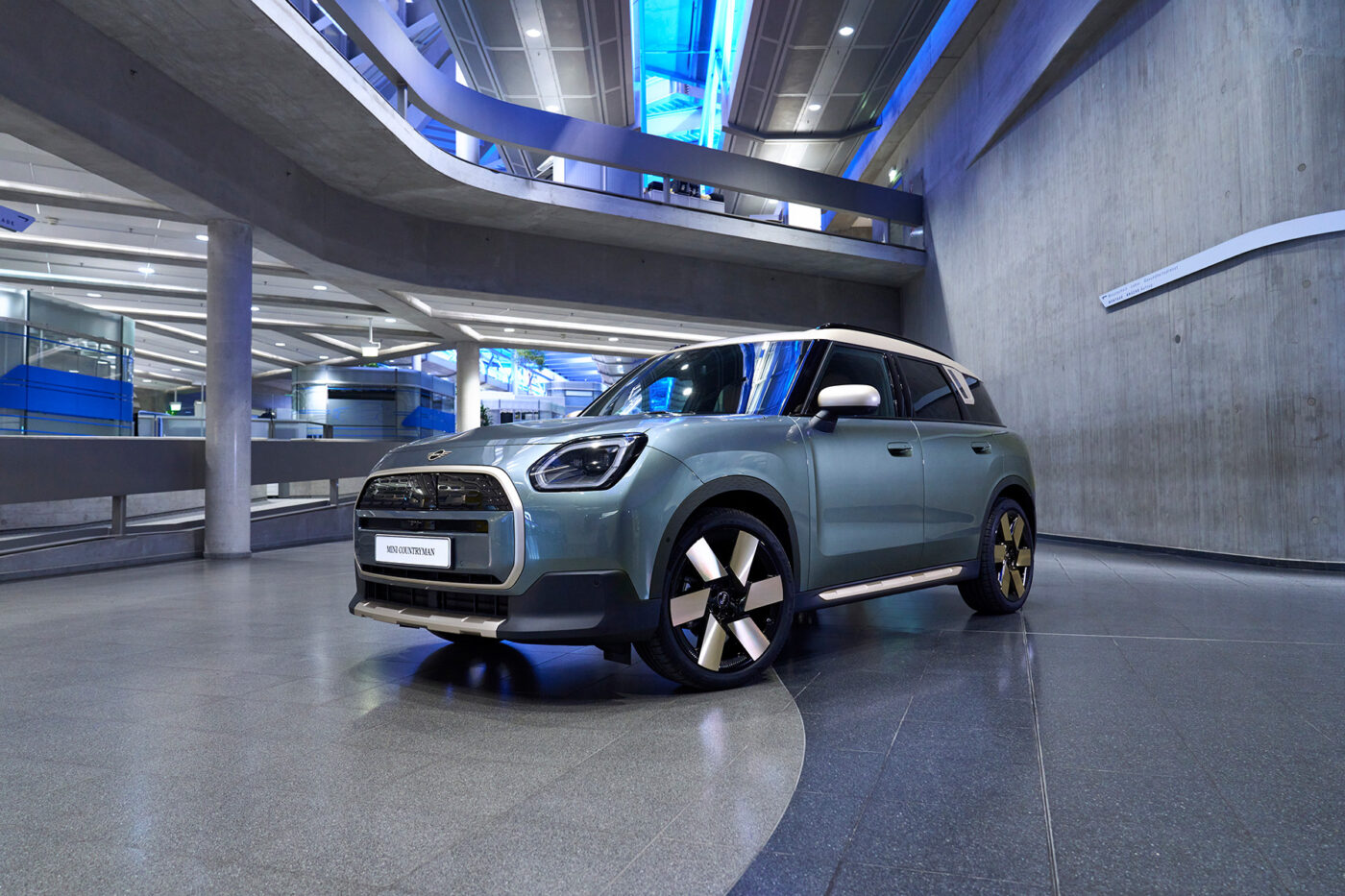
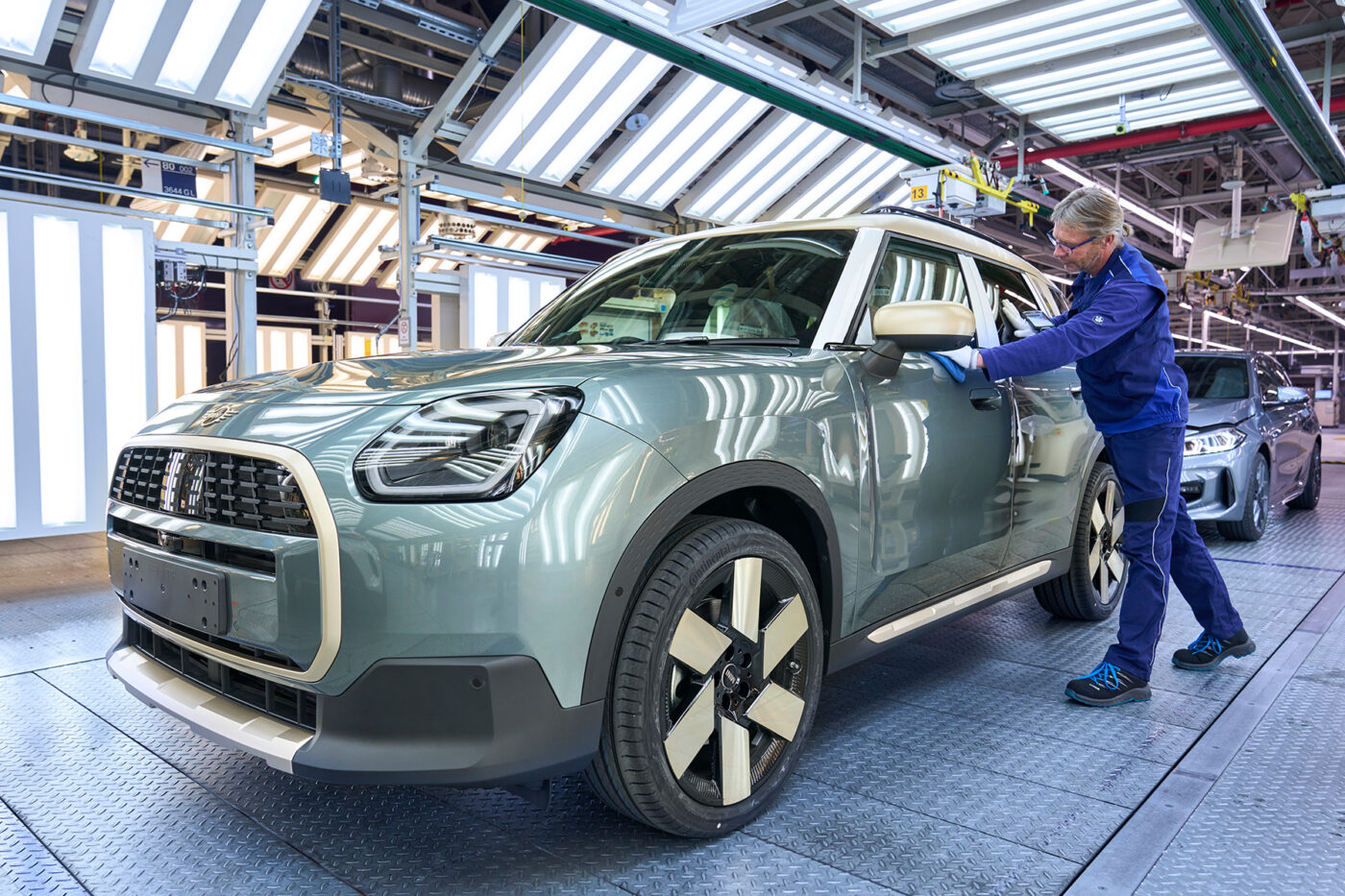
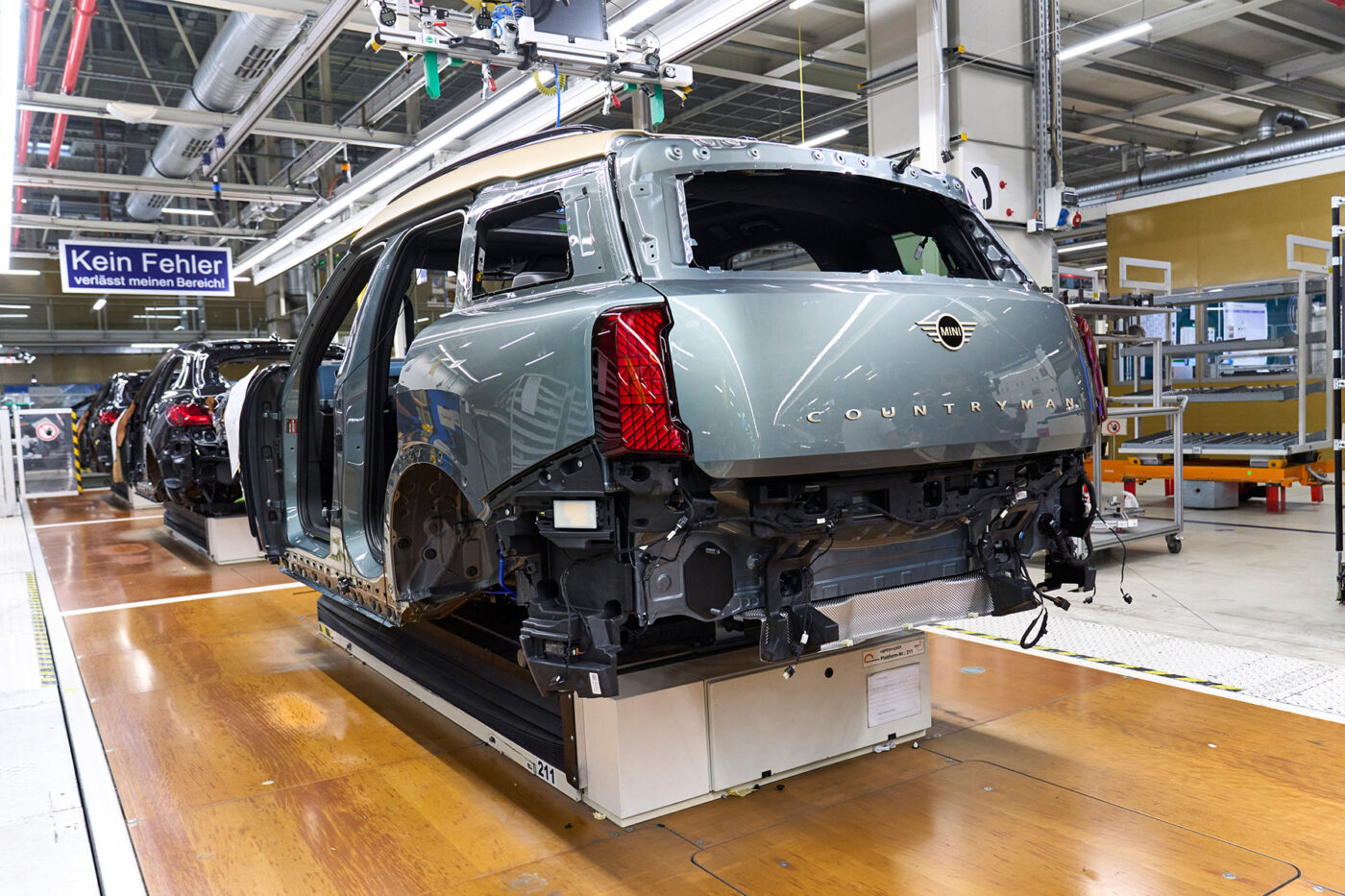
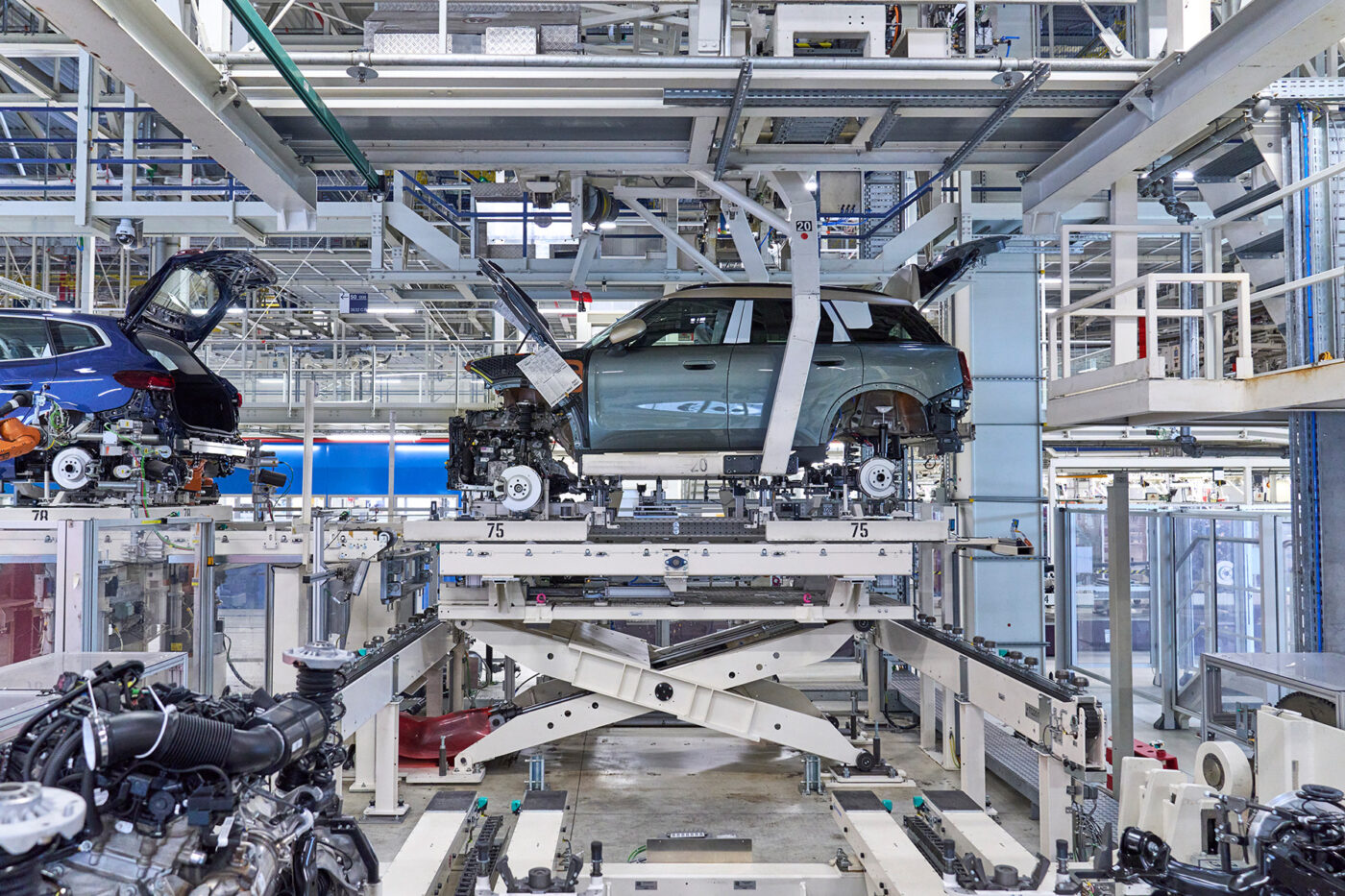
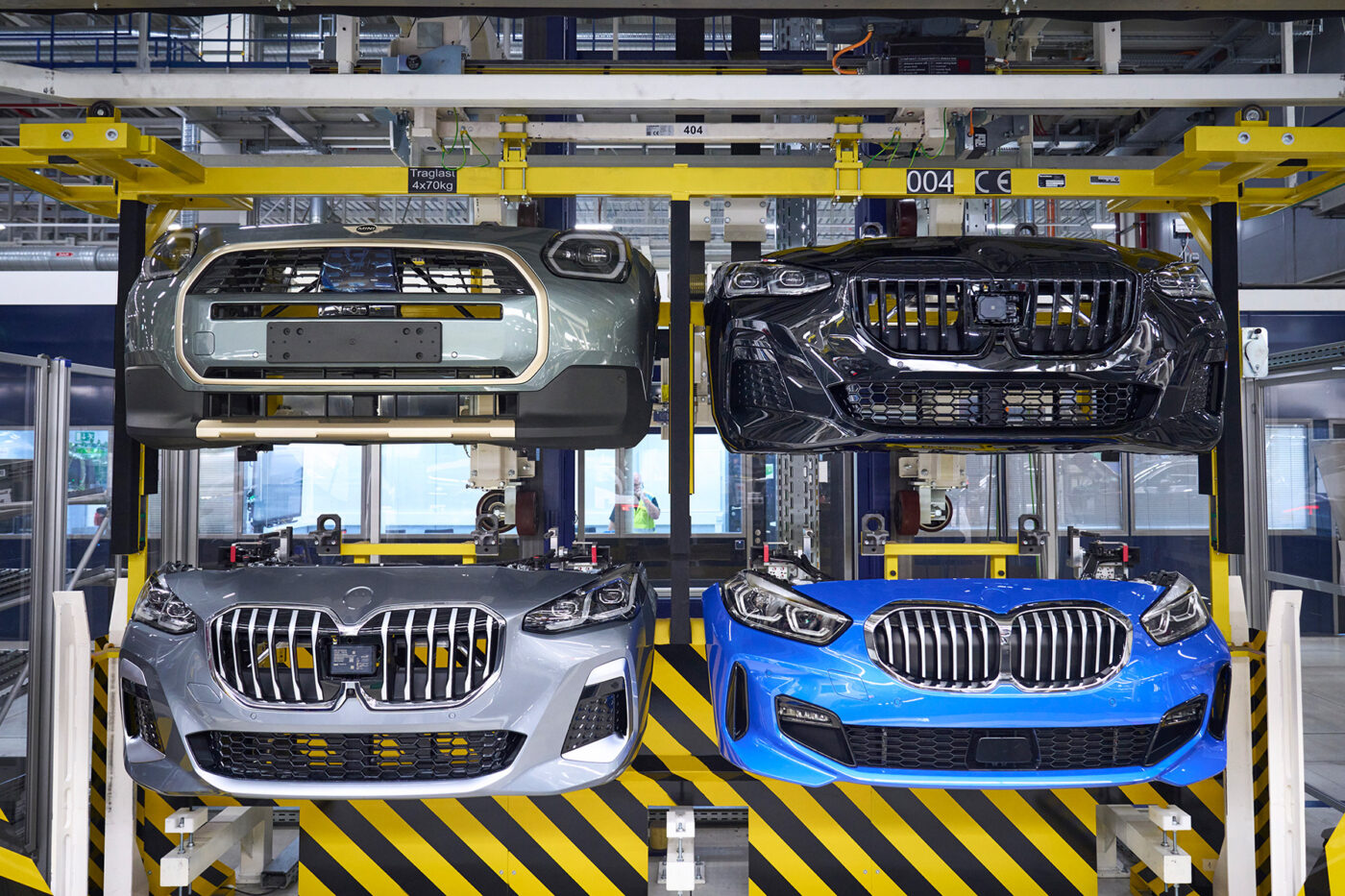
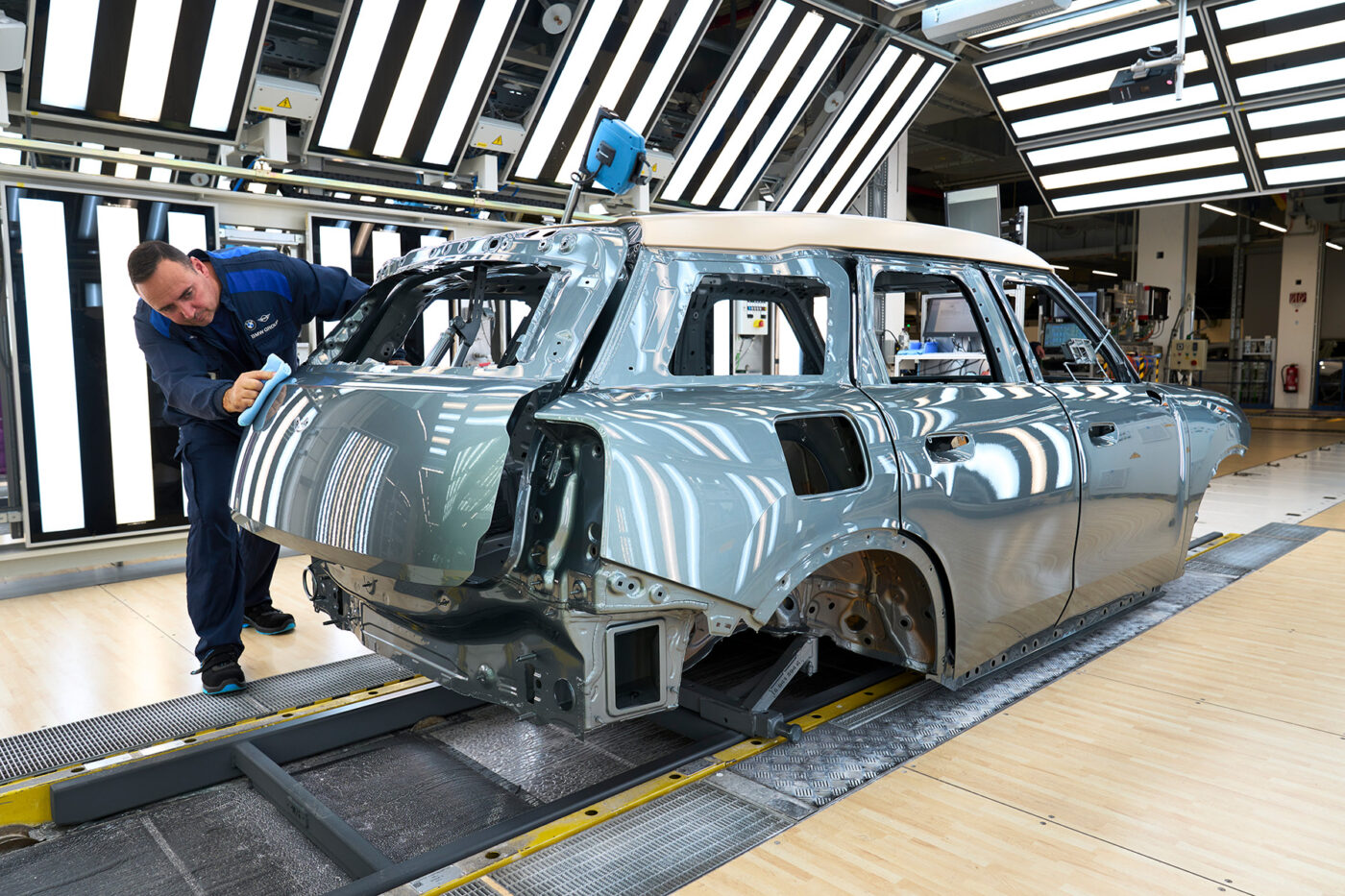
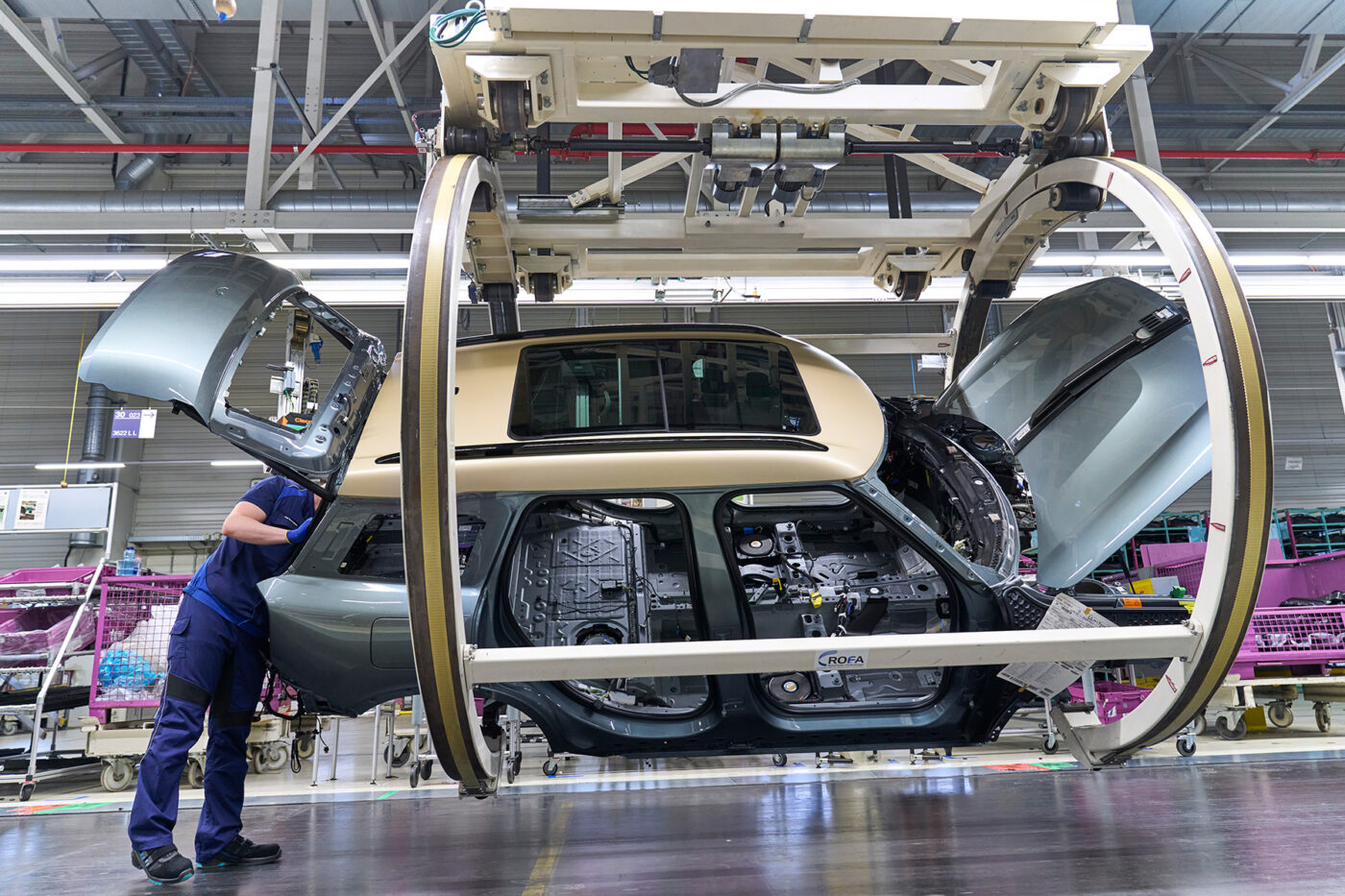
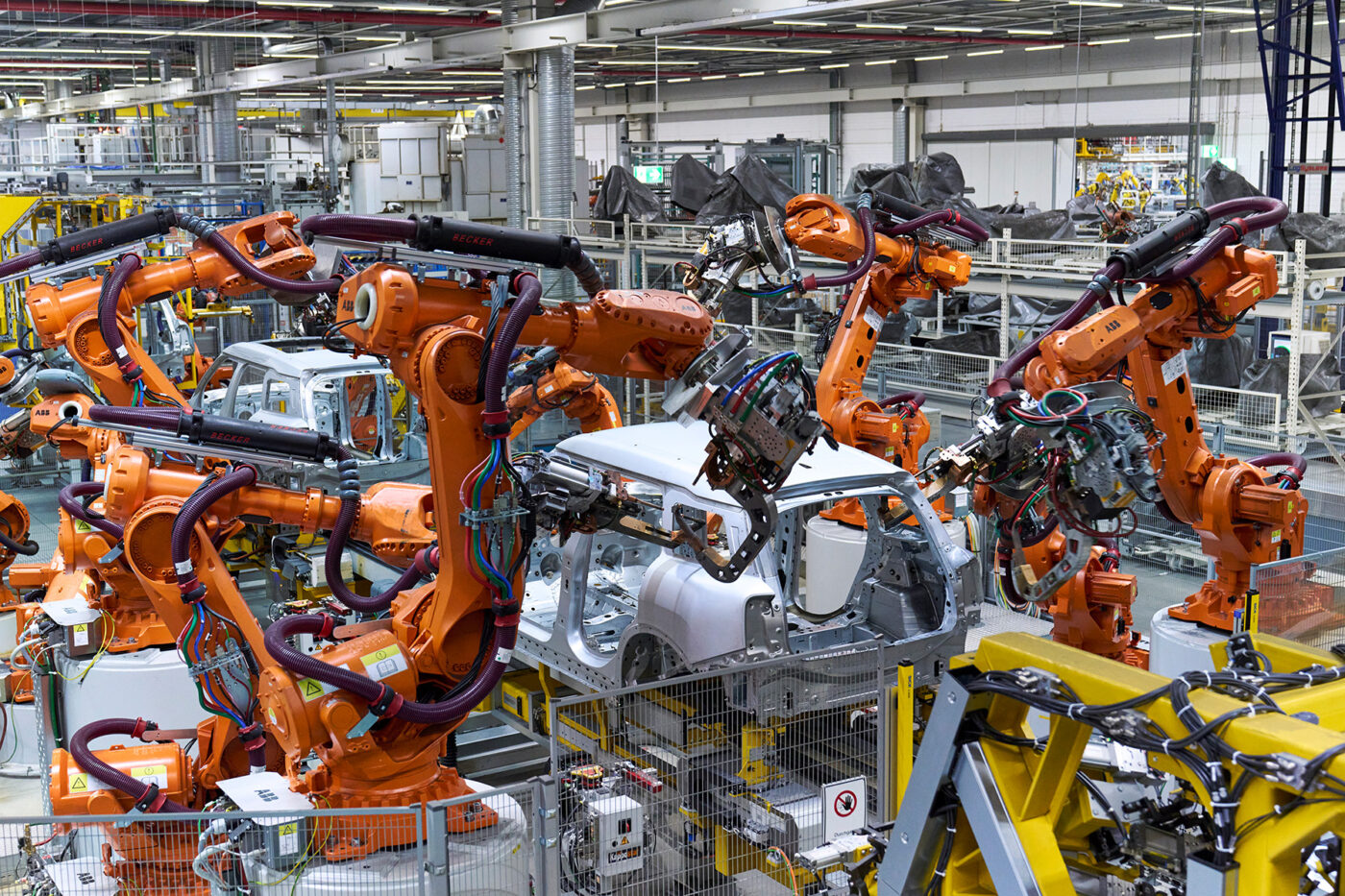
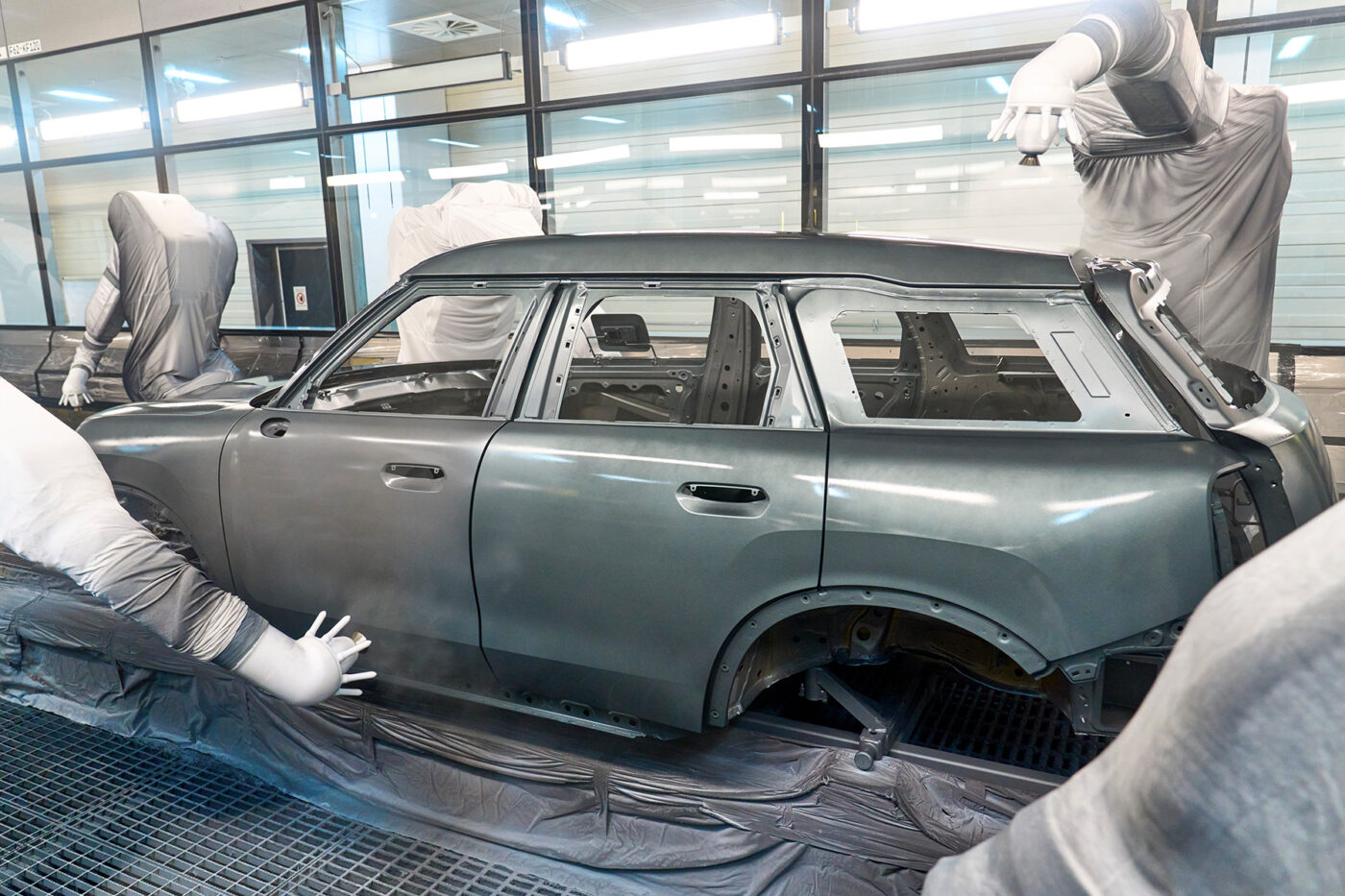
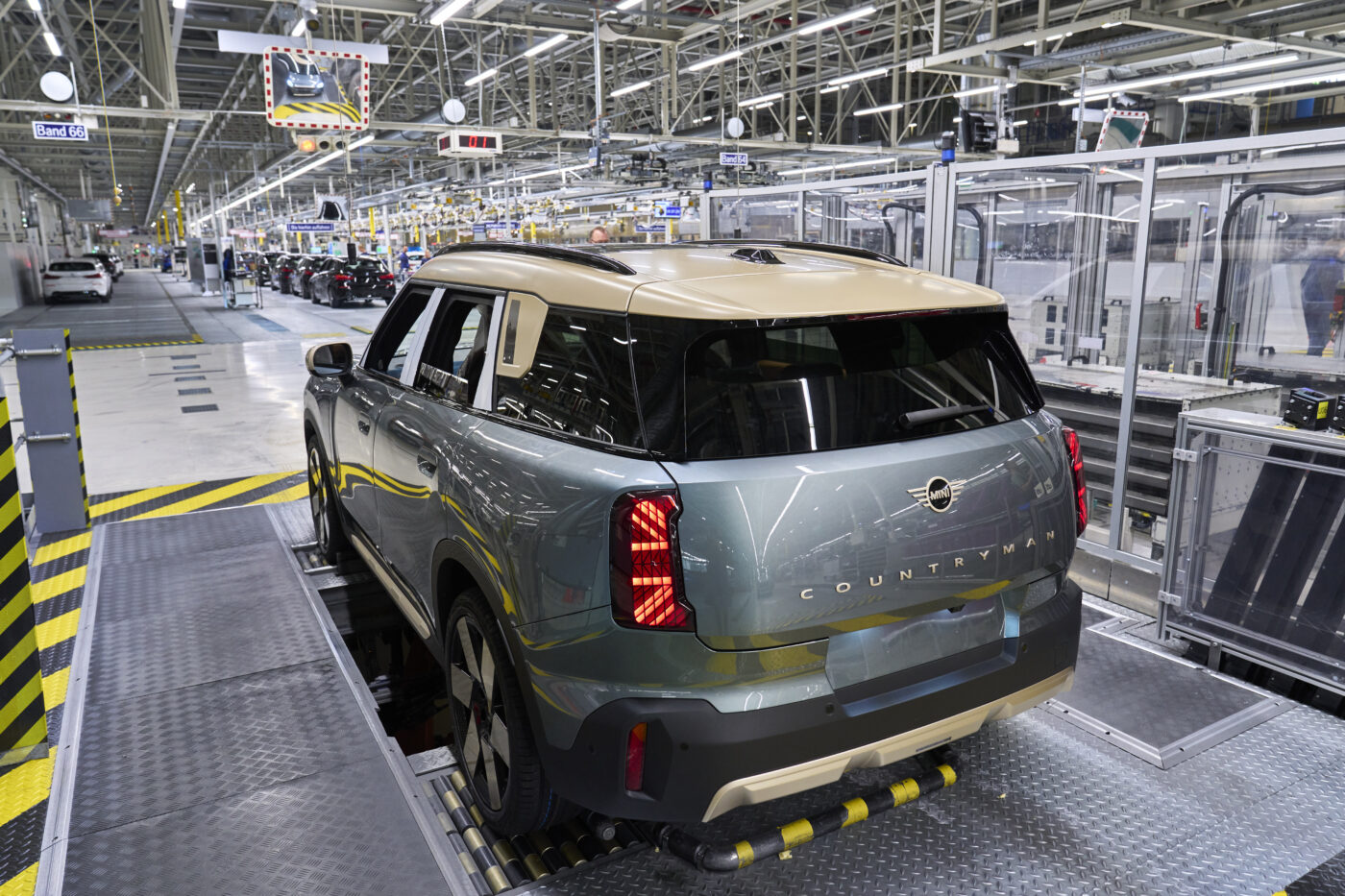
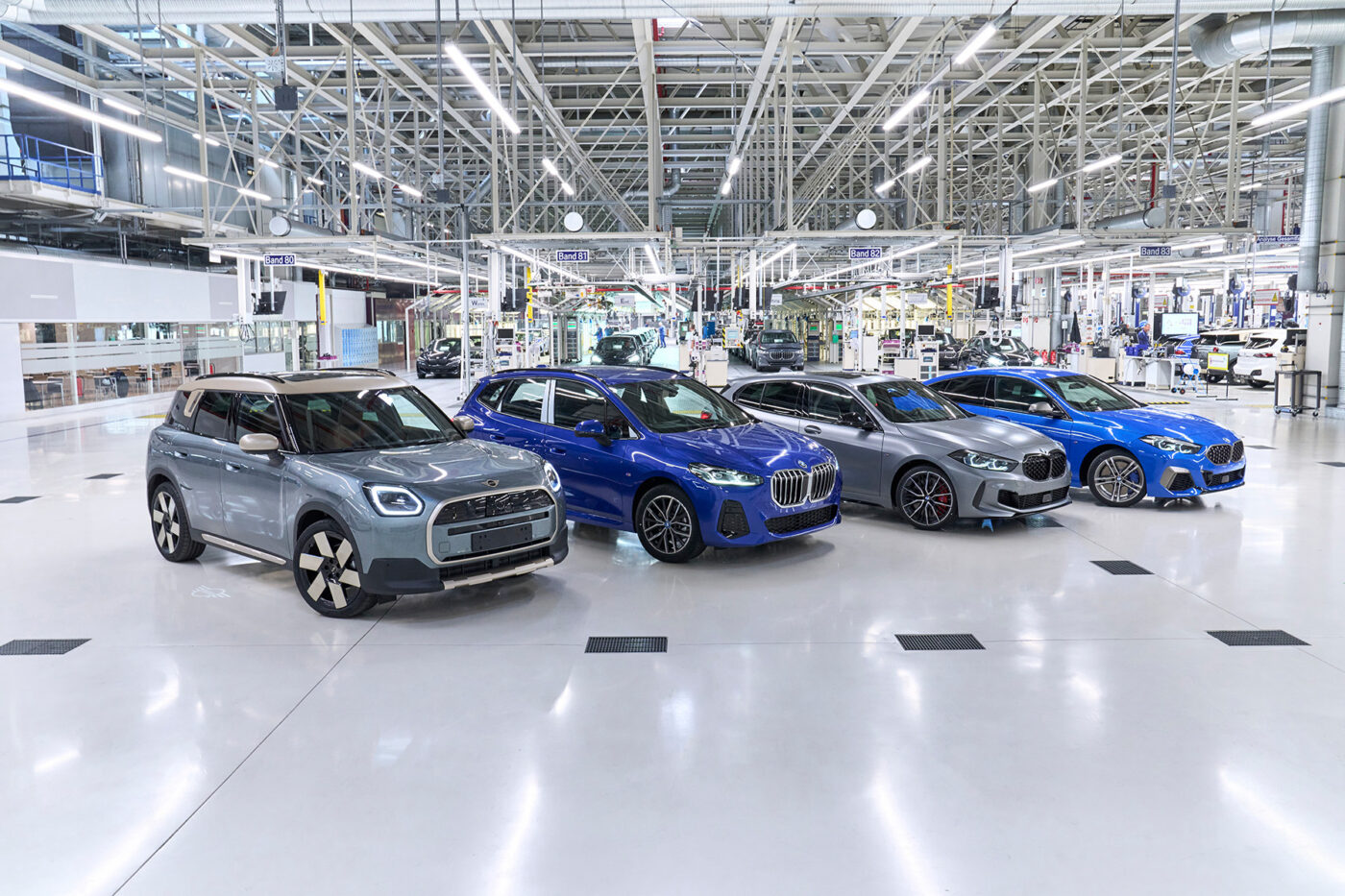
“Leipzig remains electric,” says Petra Peterhänsel, Plant Director. “With the BMW i3 and i8, we were at the vanguard of e-mobility at the BMW Group, and from 2024, we will be producing our next fully electric car: the Mini Countryman Electric. We will manufacture the high-voltage batteries for it in-house as well.”
The production process for the current fifth generation of high-voltage batteries comprises cell coating, module production and battery assembly. The lines are all in the process of going into operation, with a second high-voltage battery assembly line scheduled for launch in 2024.
Capacity for e-component production has also been increasing, since 2021, making Plant Leipzig an “important supplier across the BMW production network,” according to the Group. The parts are used in fully electric vehicles such as the BMW iX1, BMW i4, BMW i5 and BMW iX. The components unit in Leipzig currently employs over 800 people, and there are plans to develop it further, with investments totalling more than €800 million. In addition, the new Mini will also create 900 new jobs in vehicle production alone.
With Mini production moving to the continent, what will come of Mini Oxford?
The traditional Mini home is also undergoing modernisation after BMW denied rumours it could cut UK production entirely. Instead, the Group confirmed plans in September that BMW will invest £600 million in the production of Mini brand vehicles in the UK and in turning the location into EV-only. The Oxford plant is preparing to build two new all-electric Mini models from 2026 and exclusively electric models from 2030.
These, however, are the Mini Cooper 3-door unveiled at the IAA Mobility show recently and the compact Mini Aceman crossover, not the Mini Countryman.
As in Leipzig, the Oxford plant can also produce ICE and EV models. Currently, these are the Clubman with conventional engines, as well as the Mini Electric. From 2024, the plant will produce the next-gen ICE cars, as well as the new Mini Convertible, before adding the two aforementioned fully electric models in 2026.
At the time, BMW added a targeted production capacity of around 200,000 vehicles per year. The carmaker insists it will invest more than £3 billion (around €3.5 bn) in its UK plants at Swindon, Hams Hall and Oxford by 2030.
“Leipzig remains electric.”
Petra Peterhänsel, Plant Director
As for the new Mini Countryman from Leipzig, BMW will offer the electric version as a front-and all-wheel drive model. The single-motor Mini Countryman E delivers 150 kW of power, 250 Nm of torque and 8.6 seconds for the sprint to 100 km/h. The all-wheel drive Countryman SE ALL4 is based on the BMW iX1 xDrive30: Here, 230 kW is available, and with 494 Nm of torque, it reaches three-digit speeds in 5.6 seconds. While the front-wheel drive model can cover 462 kilometres on a single battery charge, according to the WLTP, the all-wheel drive model has a range of 433 kilometres. In both cases, a 66.5 kWh battery is installed.
Unlike the Mini Cooper, the new electric Countryman can be charged with up to 22 kW AC. Fast charging at a DC charging point is possible with a peak of up to 130 kW; here, too, Mini states “just under 30 minutes” for the standard charging process from ten to 80 per cent. The Countryman also features battery preconditioning via the navigation system, and the model also has Plug&Charge functionality.
The prices are also already known: The Countryman E starts at 43,500 euros, while the all-wheel drive model will cost 6,000 euros more – i.e. at least 49,500 euros.




0 Comments